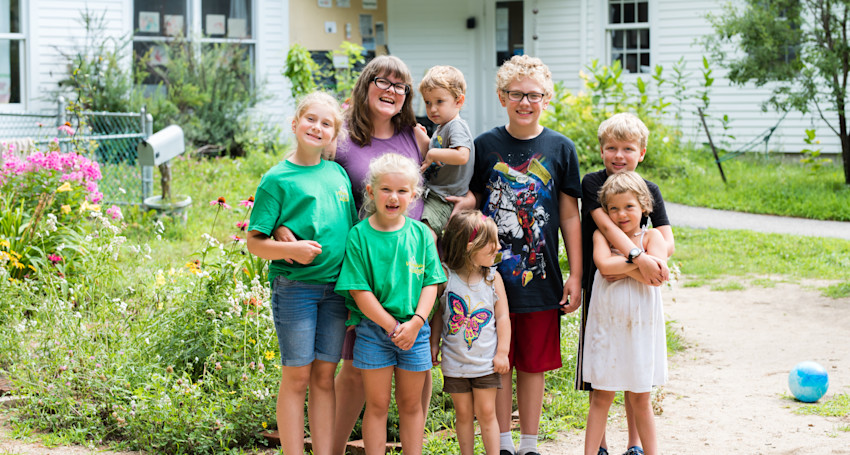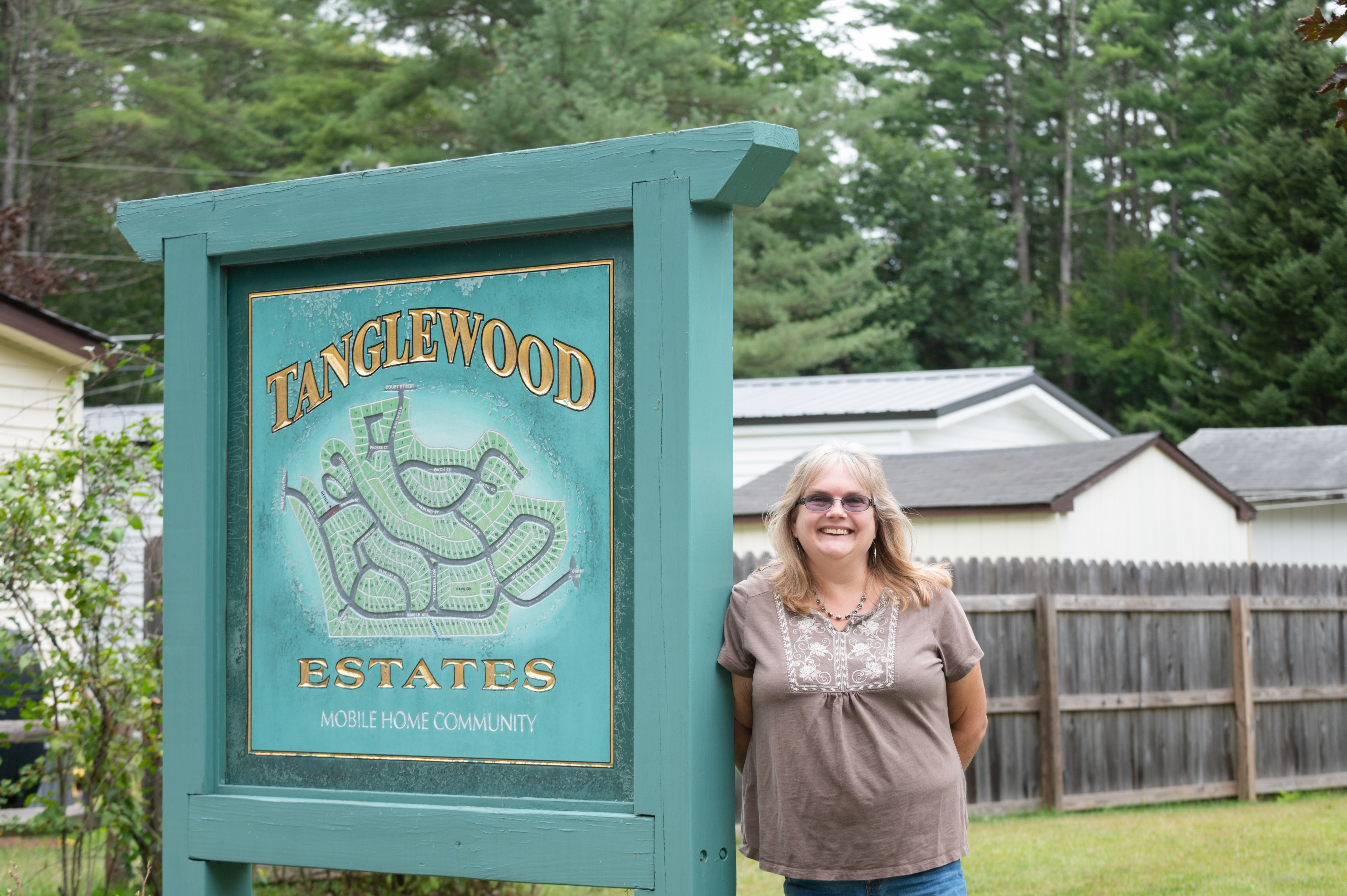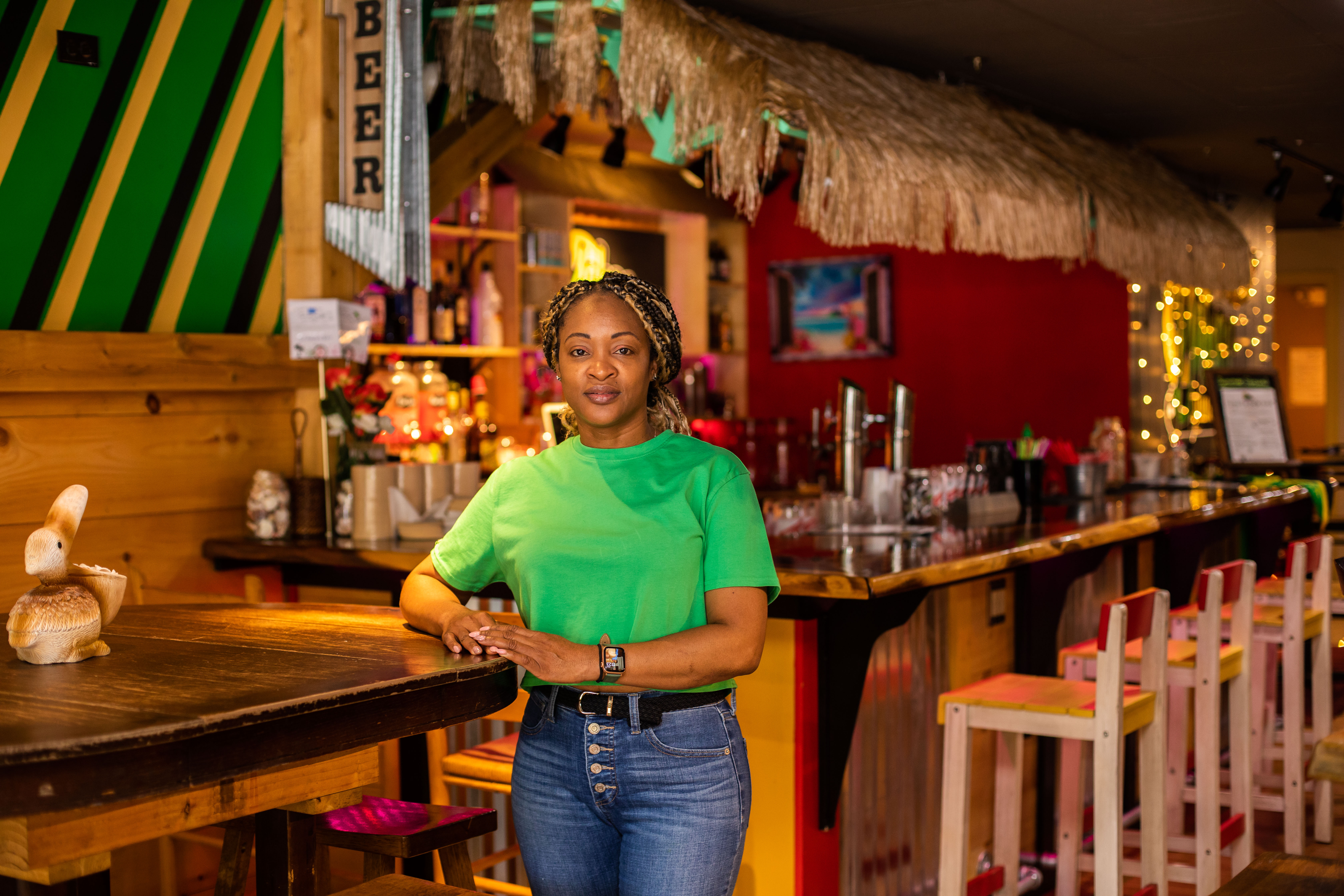
Students of Country Day School in Colebrook, NH
Success Story: New Hampshire Community Loan Fund
October 26, 2022
Introduction – Calvert Impact's history with New Hampshire Community Loan Fund
In 1997, in our second year of lending operations, Calvert Impact made a $150,000 loan to New Hampshire Community Loan Fund (Community Loan Fund), a community lender that transforms the lives of people with low and moderate incomes in New Hampshire. Collaborating with a wide range of partners, the Community Loan Fund provides the support people need to maintain affordable housing, access quality jobs and childcare, and become financially independent. Our lending relationship with the Community Loan Fund continued for over 20 years and, by 2015, our financing grew to $6.5 million to support the Community Loan Fund’s affordable housing and mortgage lending, community facilities financing, and small business loans.
Through the decades, we supported the Community Loan Fund as they expanded beyond affordable housing, weathered the 2008 financial crisis and the economic recession that followed, and executed their 2015-19 strategic plan which enabled them to double their loan volume and create deeper impact in new areas of New Hampshire. Their loan portfolio grew from $10 million in the early 2000s to $145 million at the end of 2021.
After launching their own retail investment product and gaining direct access to traditional sources of capital including individual and institutional partners, the Community Loan Fund repaid our latest loan in March 2022. Bonnie Scadova, the Community Loan Fund’s Chief Financial Officer, said of our decades-long relationship: “We always saw Calvert Impact as a partner, not just a lender.”
We are excited to share the lessons learned throughout our 25-year partnership and preview ways we will continue our relationship.
How did our loan have an impact at the Community Loan Fund?
The Community Loan Fund’s affordable housing strategy is unique – not just in relation to the rest of Calvert Impact’s housing portfolio, but in context of the broader US affordable housing market. The largest portion of the Community Loan Fund’s portfolio consists of loans to assist homeowners in manufactured housing communities (MHCs) to take ownership of their parks. In New Hampshire, manufactured housing cooperatives are corporations whose members – the homeowners – own and operate their park as a nonprofit. Each house is individually owned, but the land under the house is owned by the cooperative.
Traditionally, the land upon which a manufactured house sits is owned by a landlord who rents the land out to the homeowner. In most states, because the homeowner doesn’t own the land, their housing is not considered real estate (which appreciates in value) but is considered chattel (which depreciates in value). Since housing value appreciation is the main way most people across the US build wealth, this means that a manufactured homeowner does not build wealth unless they also own the land. This also means that a landlord can raise rents – or sell to another company that will then raise rents – and the homeowner often has no choice but to move; because manufactured housing is not typically mobile, the homeowner cannot move their property with them. The Community Loan Fund pioneered a model to combat these issues. They work with residents of manufactured housing communities to form cooperatives and buy the land under their homes, thereby creating a wealth-building opportunity, securing residential stability, and cultivating pride and a sense of ownership in the MHC. This lending creates outsized impact for New Hampshirites in MHCs, but is a complicated asset class that most traditional lenders have trouble understanding and underwriting.
This kind of financing – lending that traditional banks cannot easily classify and perceive as risky because it does not fit their underwriting models – is Calvert Impact’s bread and butter. Our longstanding support of the Community Loan Fund not only provided them with a stable and increasing source of capital to grow and demonstrate the creditworthiness of their portfolio, but also signaled to other investors that the Community Loan Fund was a valuable, investable opportunity. In fact, in the last decade, banks in New Hampshire have become more interested in investing in resident-owned manufacturing housing communities; the Community Loan Fund’s work had the effect of proving out the market and attracting more traditional sources of capital. As Bonnie puts it, “Having Calvert Impact on our list of major investors for so long helped attract and give confidence to other investors. Calvert Impact knows us so well and everyone knows the Calvert Impact name.”
 The signaling effect of our long-term lending was particularly critical in helping the Community Loan Fund realize their 2015-19 Strategic Plan. At that time, they saw rapidly growing demand for capital and support to help residents purchase their MHCs and set an ambitious plan to double lending and originate $100 million in new loans, reach deeper in every region of New Hampshire, and raise $29 million in unrestricted grants to support lending growth and technical assistance to set their clients up for success.
The signaling effect of our long-term lending was particularly critical in helping the Community Loan Fund realize their 2015-19 Strategic Plan. At that time, they saw rapidly growing demand for capital and support to help residents purchase their MHCs and set an ambitious plan to double lending and originate $100 million in new loans, reach deeper in every region of New Hampshire, and raise $29 million in unrestricted grants to support lending growth and technical assistance to set their clients up for success.
Not only did the Community Loan Fund succeed and reach their goals, but they also successfully completed what they now refer to as “the big deal:” in 2018, four manufactured home parks went up for sale at the same time, creating the opportunity to preserve one thousand units of affordable housing for residents. Calvert Impact, alongside substantial investments from several foundations and individual donors, helped them realize that goal and the Community Loan Fund helped the residents of three of the parks purchase their MHCs. This kind of investment would not have been possible without the track record the Community Loan Fund built over the decades, with support by Calvert Impact.
How does the Community Loan Fund impact the communities they serve, and the New Hampshire affordable housing markets overall?
Since their founding in 1983, the Community Loan Fund has channeled more than $412 million in direct financing to New Hampshire communities – financing affordable housing, small businesses, community nonprofits, and childcare spaces. They have provided 145 resident-owned manufactured home communities with financing and technical assistance and have financed more than 10,800 units of affordable housing. Their loans have also created or preserved 3,965 jobs and 4,557 childcare and school spaces.
The Community Loan Fund’s impact on small businesses
The Community Loan Fund has provided loans across the state for a variety of purposes, such as helping Syrian immigrant Ahmad Aissa expand production capacity for his Concord bakery Aissa Sweets, enabling Yahso Jamaican Grille in Keene to move to a larger restaurant space and safely serve more customers throughout the COVID-19 pandemic, keeping Colebrook’s Country Day School open when faced with imminent closure, and helping employee-owned ReVision Solar Impact Partners install solar arrays for five new projects – including an array that will save $270/year for each resident of the Mascoma Meadows resident-owned manufacturing housing community in Lebanon.
 The Community Loan Fund has broad reach throughout the state and focuses on deeply serving small businesses through customized coaching. For example, while New Hampshire’s population is over 88% white, the Community Loan Fund recognizes that entrepreneurs of color have been left out of small business programs. To reach more entrepreneurs of color, the Community Loan Fund has partnered with the Manchester NAACP to launch the Community-Driven Economic Empowerment (C-DEE), a pilot program that aims to bring people of color together as a community to create resilient neighborhood businesses. It is the Community Loan Fund’s hope that C-DEE will help business owners of color overcome the persistent challenges they have identified, such as lack of financing and struggles with technology and bookkeeping, by connecting them with financing partners and technical assistance.
The Community Loan Fund has broad reach throughout the state and focuses on deeply serving small businesses through customized coaching. For example, while New Hampshire’s population is over 88% white, the Community Loan Fund recognizes that entrepreneurs of color have been left out of small business programs. To reach more entrepreneurs of color, the Community Loan Fund has partnered with the Manchester NAACP to launch the Community-Driven Economic Empowerment (C-DEE), a pilot program that aims to bring people of color together as a community to create resilient neighborhood businesses. It is the Community Loan Fund’s hope that C-DEE will help business owners of color overcome the persistent challenges they have identified, such as lack of financing and struggles with technology and bookkeeping, by connecting them with financing partners and technical assistance.
The Community Loan Fund’s impact in affordable housing
The Community Loan Fund has pioneered and perfected a model for working with residents of manufactured housing communities – which is the largest source of unsubsidized affordable housing in the US and provides housing for 22 million Americans – to help them organize and incorporate cooperatives and create resident-owned communities (ROCs). ROCs convey many benefits to residents, including control of monthly lot rents and community repairs, lifetime security against unfair eviction, liability protection as members of a ROC are not personally liable for association loans, and a strong sense of community.
 Just as important are the wealth-building opportunities that membership in a ROC can present. In 2008, researchers from the University of New Hampshire published findings that suggested ROCs “indeed provide a more affordable housing option for low-income families, as well as an enhanced sense of ownership and an opportunity to build equity.” There is even evidence that ROCs are better situated to adapt to climate change hazards due to better access to financing and other resources and their ability to self-govern and self-manage the communities. In fact, the Community Loan Fund has begun to work with their borrower ReVision Energy to install solar arrays on ROCs, with one solar array completed and three more in pipeline.
Just as important are the wealth-building opportunities that membership in a ROC can present. In 2008, researchers from the University of New Hampshire published findings that suggested ROCs “indeed provide a more affordable housing option for low-income families, as well as an enhanced sense of ownership and an opportunity to build equity.” There is even evidence that ROCs are better situated to adapt to climate change hazards due to better access to financing and other resources and their ability to self-govern and self-manage the communities. In fact, the Community Loan Fund has begun to work with their borrower ReVision Energy to install solar arrays on ROCs, with one solar array completed and three more in pipeline.
Given the Community Loan Fund’s decades-long experience, they started to see a need for an entity to work with MHC residents outside of New Hampshire, and in 2008 spun out a separate organization – ROC USA, another of our portfolio partners – to work with MHCs in a specialized way nationwide. Since its founding, ROC USA has worked with 290 resident-owned communities nationwide.
Unfortunately, ROCs in New Hampshire and across the country are under threat as coverage in The New York Times and NPR has shown. Manufacturing housing communities have historically been owned by local “mom-and-pop” investors, many of whom often live in the park themselves and are members of the community. Over the last few years, these mom-and-pop owners have been retiring and putting the parks up for sale. The Community Loan Fund and ROC USA have been working with MHC residents to legally incorporate and compete for ownership of the park, but have struggled to compete with private equity funds chasing outsized financial returns. Many of these private equity firms can substantially outbid residents and, once they secure ownership of the park, raise rents so drastically that residents are forced to move – losing their stability as well as their home. As Debby Miller, the Community Loan Fund’s Executive VP of Strategic Partnerships & Philanthropy, warns: “This is definitely going to hurt access to affordable housing in New Hampshire.”
Innovative financing structures and policy changes are needed for residents to compete successfully. Additionally, the Community Loan Fund has been engaging with Congress and, in May 2022, ROC USA testified before a US House Appropriations Subcommittee, laying out the benefits of resident ownership and urging Congress to take action to help improve existing ROCs and make it easier for other communities to become resident-owned. The organizations will continue to work together on public and private sector solutions to this ongoing challenge.
What we can learn from the Community Loan Fund
- Creating ROCs to own manufactured housing communities creates many benefits for communities, including wealth-building and financial and housing stability. ROCs make up approximately 33% of all MHCs in New Hampshire, and if the Community Loan Fund can help residents successfully compete with private equity funds, there is a sizeable opportunity for resident-owned communities to preserve affordable housing and other community benefits for New Hampshirites and beyond.
- Long-term lending relationships are critical in creating lasting community development. The Community Loan Fund has been operating in New Hampshire for nearly 40 years and has been supported by Calvert Impact for 25 years, building a track record in a nontraditional asset class to attract more traditional sources of capital to grow and scale their impact. First mover lenders like Calvert Impact have been pivotal in that growth and demonstrating that manufactured housing is a highly investable opportunity – but needs to be done with impact integrity.
As Debby puts it, “We always felt like you were in our corner.” We could not imagine a higher complement from a longstanding partner, and we are determined to continue to support the Community Loan Fund and affordable manufactured housing across the US. We look forward to remaining engaged with the Community Loan Fund and sharing ways to continue financing this important asset class and investing in New Hampshire communities.




